QuestionYertle was bought in a pet store at the mall he was all of the size of a quarter. I have had him for about 5 months now and he has grown alot. He has always been a very active little turtle and has always eaten everything in sight. But with in the past couple of days he he will not eat and he just floats in the water. He is shedding right now, is this normal behavior? I have a 5 gallon tank with the filler and the correct basking light. I am having to change the water every couple day cause for some reason it gets very dirty very quickly since yertle has been acting different. Now I have another red eared slider named Mack who is just as tiny as can be and he or she is doing fine. Whats wrong with my turtle???? Please help!!!!
AnswerYertle may have an infection due to unclean tank conditions. A 5 gallon is no where near sufficient space for 2 turtles, even with filtration. Aquatic turtles can dirty water very quickly, and Red Eared Sliders can grow pretty quickly their first couple of years. You should have more like a 30 gallon or larger, even for babies, and will need larger still as they grow. It sounds like your tank is to small and your filtration not sufficient. These turtles can grow to be 10 inches or more in length in 4-5 years.
You said "basking light", but you did not specifically state whether you had a UVB light. If you don't have one, you need to get one. It is a requirement for all day basking reptiles, especially young ones. Without UVB they will suffer metabolic bone disorder. Lack of UVB can also cause other metabolic and immune system disfunction, and can aid in the prolific growth of harmful pathogens in an aquarium. The UVB lights need to be replaced every 6 months, or be tested by UVB meter.
Lack of UVB, improper diet, and other factors can also cause a serious enough metabolic disfunction that could result in renal disfunction or failure. Excessive shedding of scutes can also be a sign of renal failure.
You also didn't state whether you had a dry basking area? If they do not have sufficient dry area for basking, this can lead to shell rot infection as well.
If the scutes that are shedding are thin and transparent, this may be normal shedding, so long as they aren't coming off left and right. If the scutes are thick, slimy, foul smelling, or there is anything similar under the scute, or there is whitish bone visible underneath; then this is a serious condition that needs to be seen by a vet.
The possibilities for infection include shell rot infection and/or respiratory or gastrointestinal infection. Parasites could also be a possibility. For these reasons reptiles should always be segregated from each other for several weeks to ensure they are healthy and do not contaminate other animals.
The loss of appetite has me leaning more toward RI or GI infection, and/or your temps/UVB is not correct. If this condition does not improve in a matter or days, you will need to see a reptile vet, as I do not have enough of the required specifics to diagnose this much further.
I recommend segregating Yertle for now to a separate clean tank with plenty of dry basking area, UVB, and ensure basking temps are proper. If the scutes appear to be coming off due to infection, then you should rinse the area with betadine. You may place an appropriate amount of tri-methsulfa antibiotic in the tank until you can see a vet. These broad spectrum antibiotic tablets are available at many pet stores in the fish/aquarium section. These are not sufficient to treat more than superficial topical infections however. They may only help until you get to a vet. If there is any bubbling from the nose, or wheezing, mouth open breathing, sitting for large part of the day in one place and with eyes closed, or continued refusal to eat; then get him to a vet right away, as he will need systemic antibiotic treatment to recover. These conditions left untreated are most often fatal.
You did not describe your tank set up in detail, and the substrate you are using. Another possibility for loss of appetite may be imapaction on aquarium pebbles if they are small enough to eat. If this is a possibility, they may or may not pass on their own, and only an x-ray at the vet can determine that. Use only river rock or gravel that is too large to be eaten. Typical colored aquarium rocks are not suitable.
You need a larger tank size, and if your water temps are not up to at least 75F, you will need an aquarium heater. Use only filtered water, or water treated with reptile safe water treatment.
For more information see:
http://anapsid.org/mainchelonians.html
http://austinsturtlepage.com

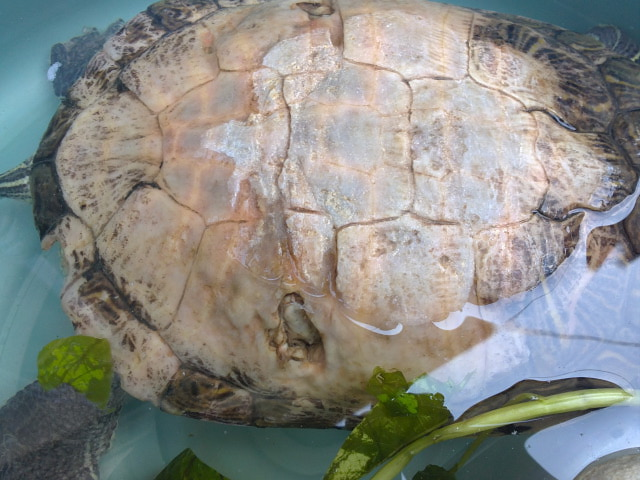 cracked/injured turtle shell
Question
turtle with injured sh
My dog bite and
cracked/injured turtle shell
Question
turtle with injured sh
My dog bite and
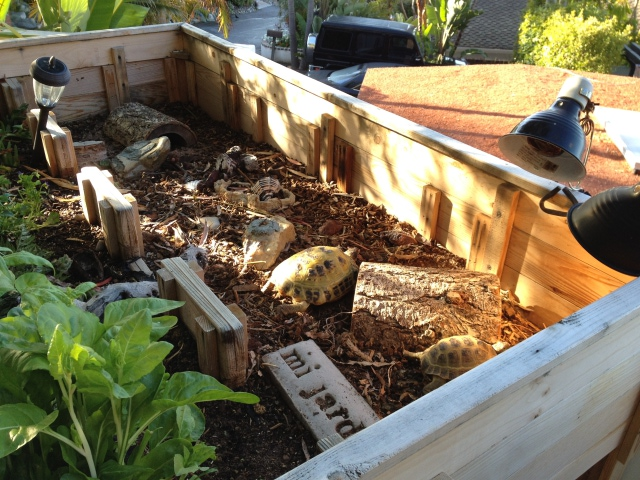 Russian turtle nesting
QuestionQUESTION: hello, we have one large female and 3
Russian turtle nesting
QuestionQUESTION: hello, we have one large female and 3
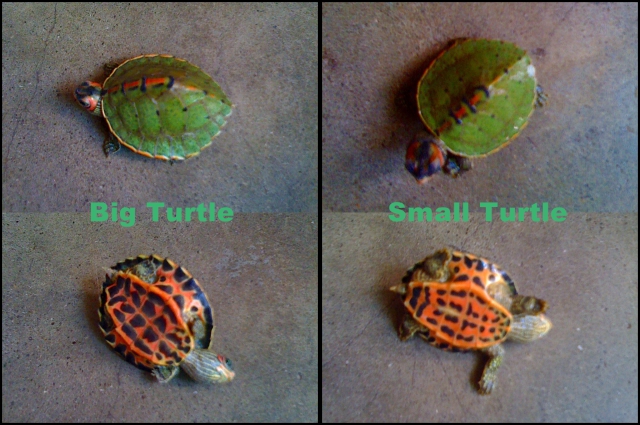 Turtle Species
Question
My Turtles
Hello, I bought two small ha
Turtle Species
Question
My Turtles
Hello, I bought two small ha
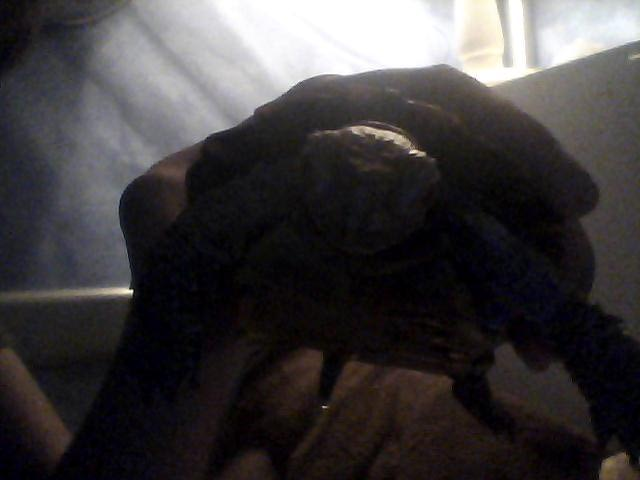 Eyes and Aim
Question
Bowseta
I have a female viatnamiese bla
Eyes and Aim
Question
Bowseta
I have a female viatnamiese bla
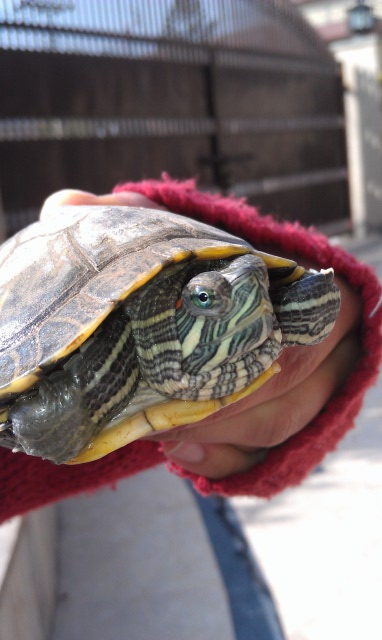 Turtle Blisters
Question
See the left leg See the left leg
Turtle Blisters
Question
See the left leg See the left leg